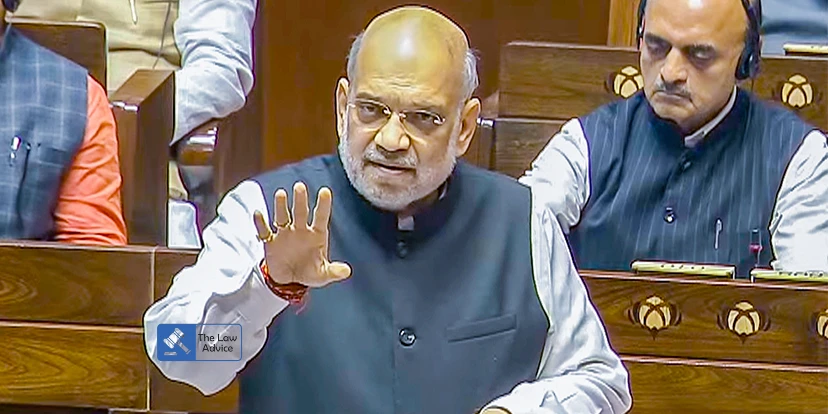Amit Shah to Introduce New Bills for Removal of PMs, CMs, and Ministers Arrested in Serious Criminal Cases
The Central Government is set to bring a landmark reform aimed at enhancing accountability among top political leaders. Union Home Minister Amit Shah will table three major bills in Parliament on Wednesday, which will lay down provisions for the removal of the Prime Minister, Union Ministers, Chief Ministers, and State Ministers if they are arrested in serious criminal cases.
Key Provisions
According to the draft bills, if the Prime Minister, Chief Minister, or any Minister is arrested on charges carrying a minimum punishment of five years and remains in custody for 30 consecutive days, they will automatically be removed from their post on the 31st day.
The three bills being introduced are:
- Government of Union Territories (Amendment) Bill, 2025
- Amends Section 45 of the Government of Union Territories Act, 1963.
- Provides a mechanism to remove a Chief Minister or Minister of a Union Territory if arrested in a serious criminal case.
- 130th Constitutional Amendment Bill, 2025
- Proposes amendments to Articles 75, 164, and 239AA of the Constitution.
- Creates a constitutional framework for the removal of the Prime Minister, Union Ministers, Chief Ministers, and State Ministers of both States and the National Capital Territory of Delhi in case of arrest under serious criminal charges.
- Jammu and Kashmir Reorganisation (Amendment) Bill, 2025
- Amends Section 54 of the Jammu and Kashmir Reorganisation Act, 2019.
- Provides for removal of the Chief Minister or any Minister of J&K if detained in a serious criminal case for more than 30 days.
These bills will be referred to a Joint Committee of Parliament for detailed examination.
Background: Recent Political Controversies
The absence of any such provision in current laws has led to several political controversies in recent years.
- Delhi CM Arvind Kejriwal: Became the first sitting Chief Minister to be arrested while in office (March 2024, Delhi Liquor Policy case). Despite being in custody, he did not resign immediately and stepped down only after securing bail.
- Tamil Nadu Minister V. Senthil Balaji: Arrested by the ED in June 2023 in a money laundering case linked to a “cash-for-jobs” scam, he remained a minister for 241 days while in jail. Although his portfolios were reassigned, he continued as a “minister without portfolio” until February 2024.
These incidents exposed a legal gap since existing laws only disqualify representatives after conviction, not during prolonged custody.
What Constitutes a Serious Criminal Case?
The proposed bills do not specify offences individually but apply to all cases where the minimum punishment is five years or more. This includes serious crimes such as:
- Murder
- Large-scale corruption
- Money laundering
- Other grave economic offences
Online Gaming Ban Bill Also on Agenda
Alongside these political accountability reforms, the Centre will also introduce the Production and Regulation of Online Gaming Bill, 2025.
Key Features:
- Complete ban on online games involving real money, betting, or gambling.
- Punishments:
- Playing or promoting such games: Jail up to 3 years or fine up to ₹1 crore, or both.
- Advertising such games: Jail up to 2 years or fine up to ₹50 lakh, or both.
- Establishment of a National Online Gaming Commission (NOGC) to regulate permissible online games.
Strengthening Democracy and Governance
The government believes these reforms will “strengthen the credibility of democracy and good governance.” By ensuring that leaders facing serious charges cannot continue in office while in custody, the bills aim to close a long-debated loophole in the system.
If passed, this will mark one of the most significant political accountability measures in India’s recent legislative history.

